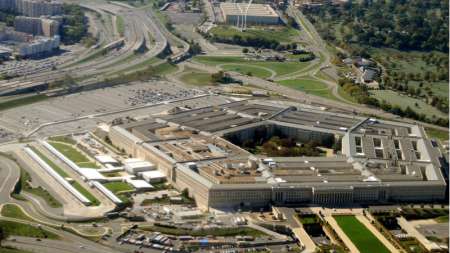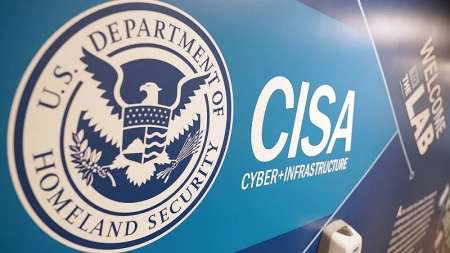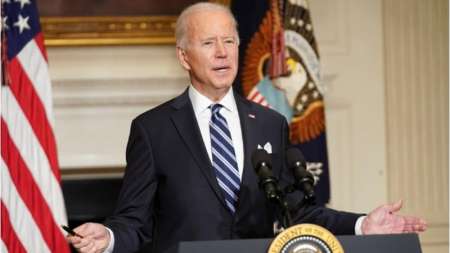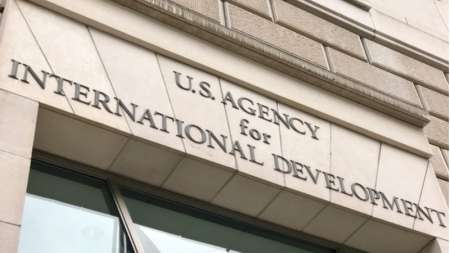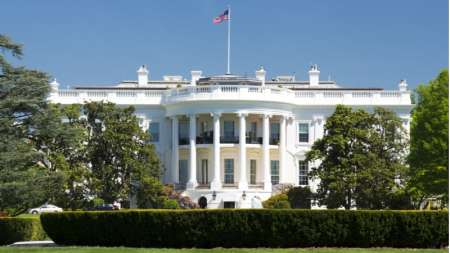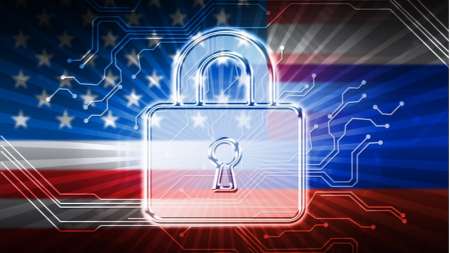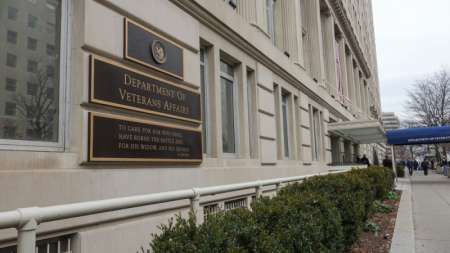Now that there are real dollars beginning to finally accompany the many voices calling for government IT modernization, it’s perfect timing for Marianne Bellotti’s new book, “Kill It with Fire,” which cautions against the headlong approach the title connotes. She conveys this quite succinctly in the book’s pithy epigraph – with a quote from Ellen Ullman, a fellow author and computer programmer: “We build our computer systems the way we build our cities: over time, without a plan, on top of ruins.” […]
The Biden administration is publicly demonstrating its willingness to lend Federal help to respond to a variety of ransomware assaults against critical infrastructure sectors – the latest involving a cyberattack against JBS USA, the world’s largest meatpacker, that forced the company reportedly to shut down nine of its plants. […]
The Defense Advanced Research Projects Agency (DARPA) is seeking innovative research concepts into how repressive regimes suppress the free flow of information. […]
The Department of Justice (DoJ) and Microsoft are arguing for a shorter duration of any further legal proceedings before the U.S. Court of Federal Claims over the Defense Department’s (DoD) Joint Enterprise Defense Infrastructure (JEDI) cloud services contract it re-awarded to Microsoft last year. […]
President Joe Biden and Vice President Kamala Harris submitted the President’s Fiscal Year (FY) 2022 budget request to congress which includes $715 billion of which is allocated for the Department of Defense (DoD) to bolster the Pentagon’s technological capabilities, among other objectives. […]
Reps. Ro Khanna, D-Calif., and Nancy Mace, R-S.C., introduced legislation on May 28 that would create a cybersecurity personnel rotation program in an effort to strengthen the United States’ Federal cyber workforce and infrastructure. […]
Sens. Maggie Hassan, D-N.H., and Marsha Blackburn, R-Tenn., and Reps. Chrissy Houlahan, D-Pa., and Jim Baird, R-Ind., have introduced the Statistical Modeling Education Act, which would help K-12 schools to modernize their math curriculum and improve K-12 science, technology, engineering, and mathematics (STEM) education. […]
The Department of Homeland Security’s (DHS) Cybersecurity and Infrastructure Security Agency (CISA) and the FBI are looking into last week’s spear-phishing campaign targeting the United States Agency for International Development (USAID), and have not found any “significant impact” to Federal agencies, according to a May 28 joint statement. […]
Sens. Gary Peters, D-Mich., and Rick Scott, R-Fla., reintroduced the K-12 Cybersecurity Act May 27 in an effort to strengthen the cybersecurity of school systems. This is the second time the two introduced the Act, having previously introduced similar legislation in 2019 in the last Congress. […]
Sen. Edward J. Markey, D-Mass., and Rep. Doris Matsui, D-Calif., introduced legislation on May 27 that would attempt to prevent the use of discriminatory online algorithms, and create a Federal inter-agency task force to investigate the use of algorithm-driven processes. […]
President Biden’s FY2022 budget document released today proposes a 14 percent increase from the estimated cybersecurity funding level for last year, to a total of $9.8 billion in Federal civilian cybersecurity funding. […]
President Biden’s Fiscal Year (FY) 2022 budget includes an estimated $58.439 billion in IT spending for Federal civilian agencies, and $500 million for the General Service Administration’s (GSA) Technology Modernization Fund (TMF), according to a budget breakdown the White House released today. […]
President Biden’s FY2022 budget proposal published today envisions an eye-popping $6.01 trillion of Federal spending – up 36 percent from last year’s approved FY2021 budget – with a budget deficit of about $1.8 trillion. […]
President Biden is pushing for a 2.7 percent pay increase for the Federal civilian workforce in his FY2022 budget request released today. The budget also included funding to ensure more Federal workers are eligible for a $15 per hour wage. […]
The United States Agency for International Development (USAID) was the victim of a May 25 spear-phishing campaign that carried all the hallmarks of a state-sponsored attack, Microsoft said yesterday. […]
The Department of Homeland Security’s (DHS) Office of Inspector General (OIG) said in a new report that the agency has made improvements to its data management practices in recent years, and said continued improvement is necessary to address internal control issues. […]
Action on the Biden administration’s $1.7 trillion infrastructure spending proposal that debuted in late March as the $2.3 trillion American Jobs Plan is sliding well into June as the White House and Republican senators have traded offers and counteroffers on the legislation, but still remain deeply divided on the scope of the bill and its price tag. […]
President Biden’s Department of Homeland Security (DHS) nominees pledged their commitment to elevate the United States’ cybersecurity posture, in order to prevent future cyberattacks, during a May 27 Senate Committee on Homeland Security & Governmental Affairs hearing. […]
Anne Neuberger, the White House deputy national security advisor for cyber and emerging technologies who is a driving force behind the Biden administration’s cybersecurity executive order issued earlier this month, today noted an initial “disappointment” with Federal network hygiene in a follow-up discussion about the broader aims of the order. […]
The recent Colonial Pipeline hack has made more people aware of the threats that lurk in cyberspace, and Sen. Angus King, I-Maine, says it’s time for the government to develop a new relationship with the private sector on cybersecurity and take an all-of-society approach to protecting critical infrastructure. “The private sector has been very reluctant […]
In light of the recent Colonial Pipeline ransomware attack, the Department of Homeland Security’s (DHS) Transportation Security Administration (TSA) released a new directive requiring all critical pipeline owners and operators to report cyberattacks, DHS announced today. […]
The U.S. Army CIO has released a new policy for Internet of Things (IoT) device cybersecurity which mandates that all Army personnel who are approved to telework remove or turn off all IoT devices in their workspaces. […]
The National Institutes of Health Information Technology Acquisition and Assessment Center (NITAAC) has released the long-awaited request for proposals (RFP) for the $50 billion Chief Information Officer-Solutions and Partners 4 (CIO-SP4) IT services contract. […]
The Department of Veterans Affairs (VA) Office of the Inspector General’s (OIG) strategic review of the VA’s Electronic Health Records (EHR) program has found that the agency underestimated program costs by between $1 billion and $2.6 billion. […]
Legislation to establish a Blockchain Center of Excellence (CoE) within the Department of Commerce was reintroduced in the House on May 25. […]
Mark Munsell, deputy director of data and innovation at the National Geospatial-Intelligence Agency (NGA) and the agency’s former CTO, is urging the Federal government to build cyber applications faster in order to out-compete adversaries, and to expand industry partnerships. […]
The Government Accountability Office (GAO) is working on a review about the Federal government’s security clearance operations that will both praise progress that the government has made over the past three years in reducing clearance application backlogs, and flag several continuing shortcomings that need fixing. […]
For government agencies and other organizations that face the daunting task of modernizing their IT systems to meet new and developing requirements, the greatest technical risk they face is maintaining the status quo. […]
If the COVID-19 pandemic brought any sort of silver lining, it might be that it pushed government to rapidly reimagine service delivery – putting efforts to digitize operations into overdrive. From expanding digital signatures to creating a virtual command center at the Small Business Administration to standing up and expanding telehealth resources at Health and Human Services and Veterans Affairs, examples of digital government response to the pandemic are prolific and varied. […]
The COVID-19 pandemic forced Federal agencies to work remotely almost immediately, but Federal CIOs and CTOs agree that this shift to teleworking has enabled agencies to undergo a transformational cultural shift within the agency and provides more opportunities for innovation. […]





